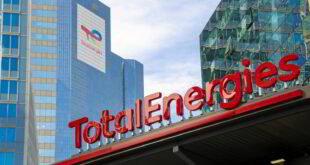The Asia Pacific (APAC) power generation sector could record investment of up to $1.5 trillion by 2030, largely driven by solar and wind projects, Kallanish Energy reports.
A new report from Wood Mackenzie found that solar and wind represent $1 trillion, or two-thirds of investment opportunities in APAC throughout the next decade. Fossil fuels – primarily coal and gas – comprise the remaining $500 billion of opportunity.
Overall renewable investment opportunities are forecast to fall 20% by 2025 compared to the peak recorded in 2017, when “generous government subsidies during the high-cost renewable era were key drivers of the previous growth period.”
Australia has so far been the leader in renewable energy investments in APAC, but is expected to face a 67% investment decline over the next five years, the report states. Challenges such as curtailment, transmission constraints and sustained low capture prices are forecast to hit Australia’s variable renewable energy in generation (VRE) share, which is currently the highest in APAC at 21%.
The report states that by 2030 the share of wind and solar in APAC power generation will more than double to 17%, with over 51 regional markets out of 81 modelled exceeding 10% VRE.
“Post 2030, we expect major acceleration in renewables investments driven by improvement in technology, lower costs and clarity in policies. In particular, we expect renewables to be competitive with new coal plants by 2030 setting the stage for a new era of subsidy-free growth,” said WoodMac research director, Alex Whitworth.
Meanwhile, WoodMac expects that investment opportunities until 2030 will be split 60-40 between coal and gas. Beyond 2030, gas is expected to rise to 70% and coal to fall to 30%. Coal investment levels are predicted to fall to $18 billion by the end of the decade, the report states.

 Iran Energy News Oil, Gas, Petrochemical and Energy Field Specialized Channel
Iran Energy News Oil, Gas, Petrochemical and Energy Field Specialized Channel



